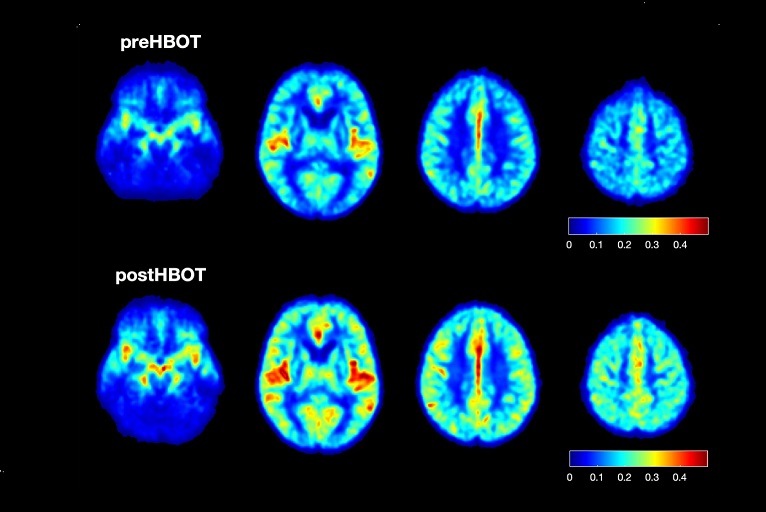
A new study, published in the peer-reviewed medical journal Aging, marks the first time non-pharmaceutical clinical exploration has proved efficacious in reversing the main activators of Alzheimer’s disease. Using a specific protocol of hyperbaric oxygen therapy (HBOT), cerebral blood flow (CBF) was increased in elderly patients by 16–23%, alleviating vascular dysfunction and amyloid burden.
The study—part of a comprehensive research programme directed towards ageing and accompanying ailments as a reversible disease—holds promise for a new strategic approach in the prevention of Alzheimer’s by not only targeting its biomarkers or symptoms, but also by addressing the core pathology and biology responsible for advancement of the disease. This is according to a press release from Aviv Clinics—which focuses on the research and treatment of age-related cognitive and functional decline, and novel applications of HBOT in this space.
This comprehensive research, the release adds, was conducted at the Sagol School of Neuroscience at Tel Aviv University in Tel Aviv, Israel, and the Sagol Center for Hyperbaric Medicine and Research at Shamir Medical Center in Be’er Ya’akov, Israel. It was led by study co-authors Shai Efrati, Uri Ashery, Ronit Shapira, Pablo Blinder and Amir Hadanny.
Based on combined data from an animal model of Alzheimer’s, where effects on brain tissue were evaluated directly, as well as humans assessed with the use of high-resolution magnetic resonance imaging (MRI) and computerised cognitive tests, correlating results displayed beneficial effects of HBOT on patients suffering from mild cognitive impairment (MCI)—the stage before dementia. Each patient received 60 HBOT sessions over a 90-day period, showcasing substantial improvements in cognitive functions, with memory, attention and information-processing speed exhibiting the strongest results.
Vascular dysfunction, the release also notes, is a crucial element in the development of Alzheimer’s and cognitive decline. Amyloid beta deposits in the brain blood vessel walls are the most common vascular pathology in Alzheimer’s, while reduced blood flow to the brain and its related decrease in oxygen supply (hypoxia) can precede the clinical onset of dementia and correlates with the degree of cognitive impairment in Alzheimer’s.
“After dedicating our HBOT research to exploring its impact on the areas of brain functionality and age-related cognitive decline, we have discovered for the first time HBOT induces degradation and clearance of pre-existing amyloid plaques (treatment), and the appearance of newly formed plaques (prevention),” said Ashery. “Elderly patients suffering from significant memory loss at baseline revealed an increase in brain blood flow and improvement in cognitive performance, demonstrating HBOT’s potency to reverse core elements responsible for the development of Alzheimer’s disease.”
“By treating vascular dysfunction, we are mapping out the path toward Alzheimer’s prevention,” added Efrati, research group leader and medical advisor to Aviv Clinics. “More research is underway to further demonstrate how HBOT can improve cognitive function and become an influential tool in the imperative fight against the disease.”
The release adds that Aviv Clinics has developed a unique medical treatment protocol that includes HBOT, cognitive and physical training, and nutritional coaching, to enhance brain and body performance in ageing adults, which is currently available in Central Florida and Dubai.












